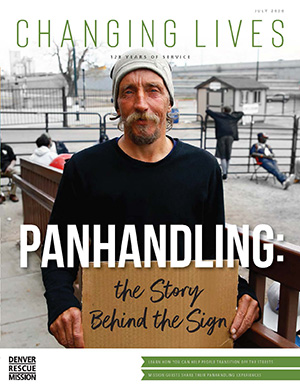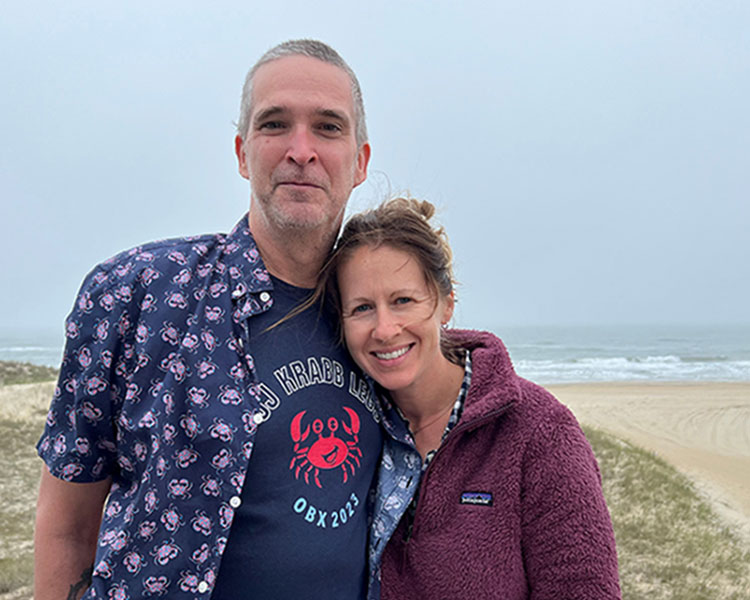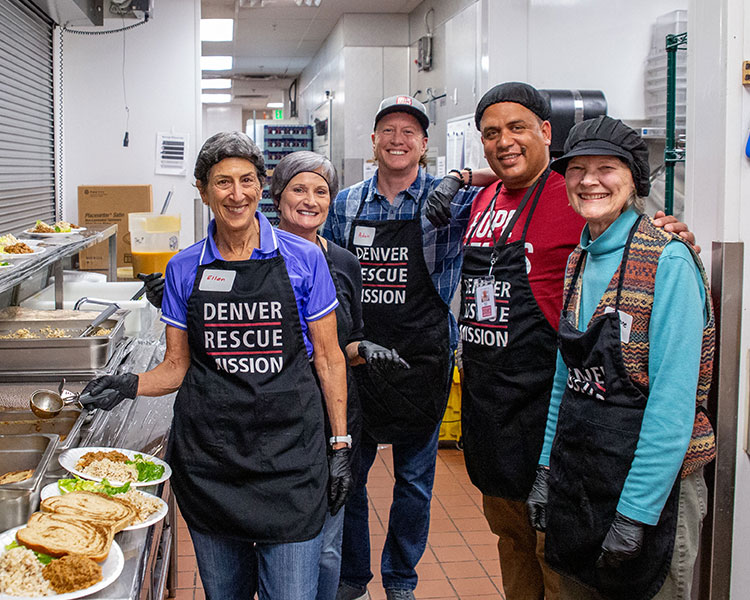When you come across individuals begging for money, you don’t know much beyond what’s written on their vague, all-too-familiar signs. You don’t know their stories—where they’ve been or where they’re going. You don’t know their unspoken needs.
Humberto typically panhandles toward the end of the month when his disability benefits run out. Passersby don’t know his story, so when they yell things like “get a job,” he feels disrespected. They don’t know why he isn’t currently working. They don’t know that he suffers from a neurological disorder and scoliosis after being in an accident in 2016. “The worst is I can feel when people are looking down on me,” he said.
Panhandling, or soliciting money, food or other items, can be a short-term survival strategy, a long-term source of income, or, like Humberto, a way to supplement current income.
In 2018, Francisco Conejo, a marketing instructor and researcher at the University of Colorado Denver, spent 40 weeks observing people panhandling along the 16th Street Mall, totaling 360 observation sessions1. He discovered that panhandlers in Denver make an average of $10 per hour.
This observation holds true for Billy, who lived in a park for four months before making his way to Denver Rescue Mission’s Lawrence Street Community Center (LSCC).
He typically panhandled for about three to four hours at a time and made a total of $30-$40, and he mostly spent the money on food. But even a “good day” of panhandling was not sustainable. He once made $170 in seven hours, only to lose it after he fell asleep that night. He was robbed and assaulted and spent 10 days in the hospital as a result.
Josh Geppelt, vice president of programs at the Mission, spent more than a decade observing and conversing with people who panhandled and saw most people panhandling during morning and evening commutes as they targeted pedestrians or drivers during peak traffic times. He discovered that people use the money for a range of different things, such as food, drugs, alcohol, prescriptions, and hotel accommodation.
“There are certainly assumptions in society that people who are panhandling are simply trying to help with an addiction,” Josh said.
“While I would never say that’s not the case, I think it is foolish to assume that’s everybody’s main goal.”
While giving money can meet an immediate need, it won’t address the underlying circumstances that caused that individual to panhandle in the first place.
“All you’re doing is taking care of that need in that moment, and you’ve not done anything to help with other needs that weren’t spoken,” Josh said.
That’s where Denver Rescue Mission comes in. When an individual steps in to LSCC for a meal, they get access to much more than food. The Mission provides additional services such as shelter, drinking water, restrooms, showers, laundry facilities, and chapel. As we meet the immediate needs of our guests, our staff builds relationships to help them reach self-sufficiency through services like Next Step, which offers targeted care to help men take steps toward stability, access to long-term rehabilitation and transitional programs, and guidance from case managers and Peer Navigators, staff members who have lived experience with homelessness.
With the help of Mission staff, Billy was able to access his birth certificate, apply for an ID and land a custodial job at a motel. He hasn’t panhandled since first visiting the Mission and would rather work than panhandle. “I’m used to working,” Billy said. “I’ve been working since I was 15, and I’m 51 now. Now that I’m going to have this job, it’s great to be able to start all over again.”
According to a study about the income and spending habits of panhandlers, about 70 percent of respondents said they prefer having a minimum wage job because of the desire to get off the street and receive a steady income, but many felt that conventional jobs were unattainable because of a physical disability, mental illness or lack of skills. Seventy percent of respondents reported that they had a chronic health condition or disability in the last year.
Humberto has been eating meals at the Mission for the past few weeks and hopes to get a job and an apartment soon. “I used to feel ashamed and nervous, but I don’t anymore,” he said. “I know this will pass. I’ve got high hopes.”
More to the Story
We sat down with Mission guests recently to ask them about their experiences panhandling. We asked them to write down words that describe their lives now —the way they see themselves today.
Anthony, a Denver Rescue Mission guest, panhandled in Denver in the early ’90s and hopes to never have to do it again. “Panhandling is a hard thing to do, because it brings you down to a certain level,” he said. “It makes you seem like you’re needy—kind of bothersome. But at the same time, you’re doing what you have to do to get by.” Anthony has come a long way since then. He now works as a security guard at Allied Universal.
“It all depends on the path you’re on,” Anthony said, “and right now, I’m on a new path.”
Anthony
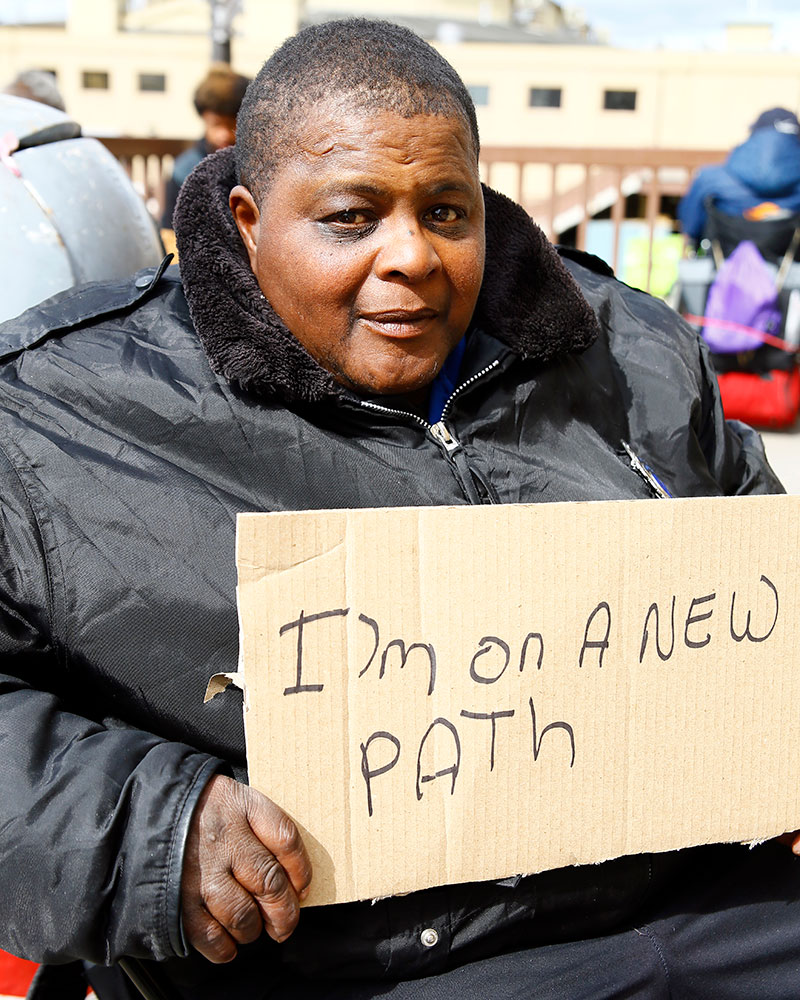
Humberto
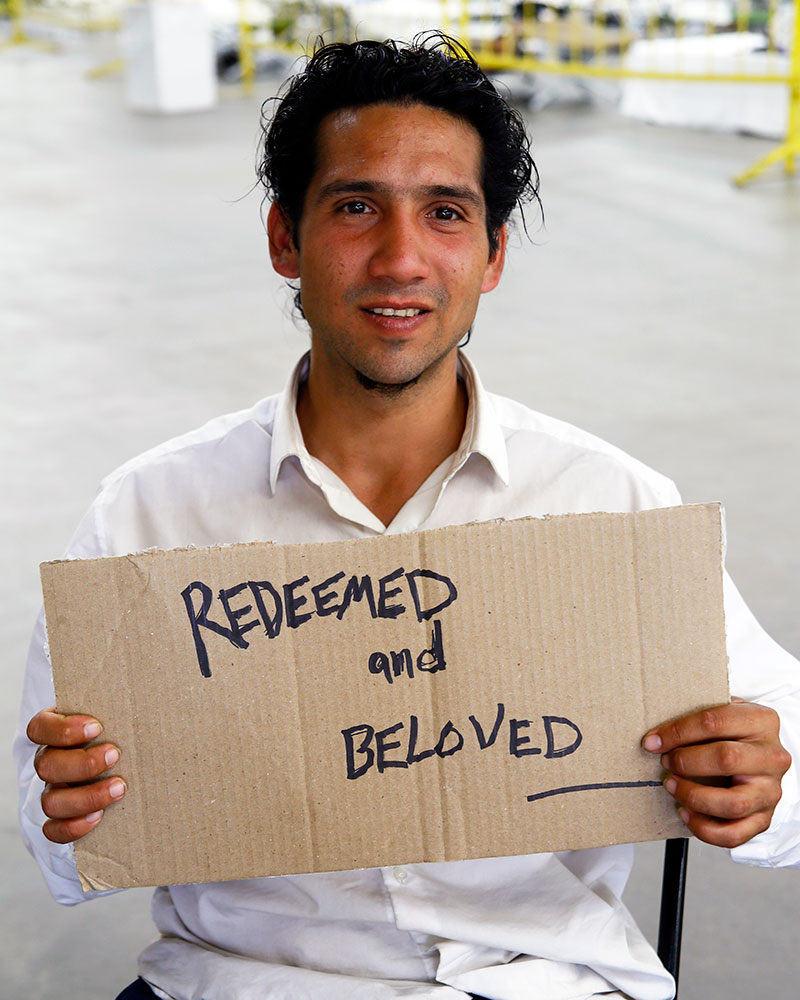
Billy
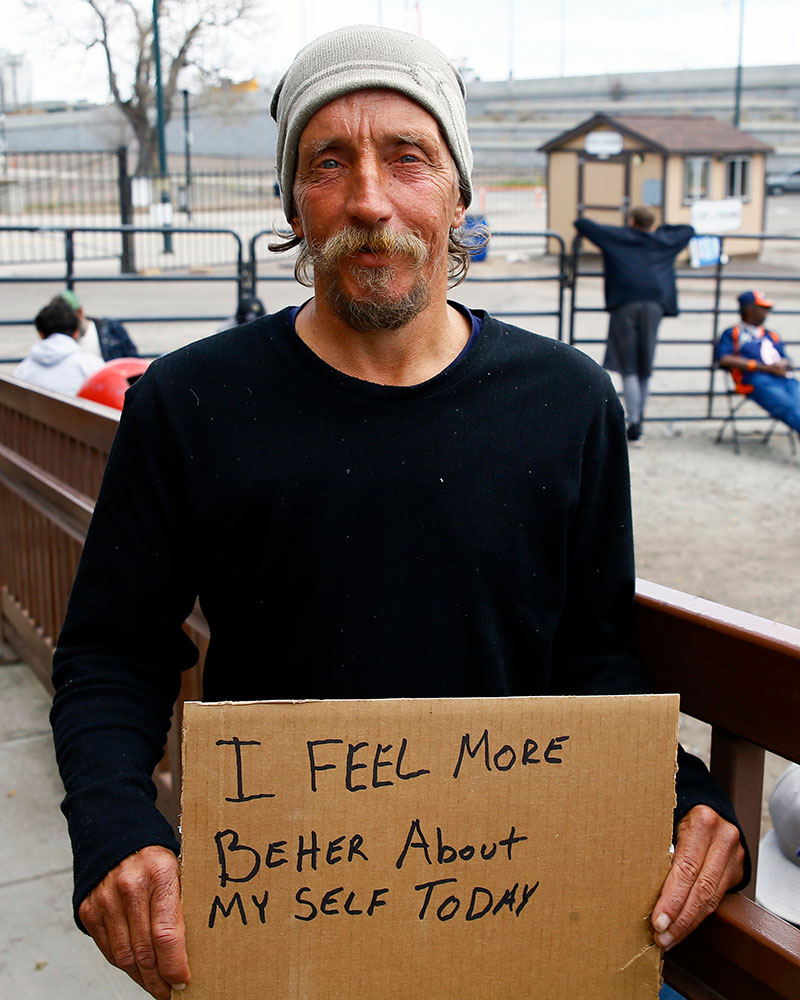
Studies show that an individual who has a strong personal network to rely on is less likely to panhandle. We build relationships with guests to better understand their needs and help them take steps toward stability. Your gifts allow us to do this vital work.
ACKNOWLEDGE. INFORM. DONATE.
How to Meet the Long-term Needs of People on the Streets
We often think giving money, food or other items to people who panhandle is the best we can do. While that may meet their immediate needs, giving your attention, taking time to share your knowledge of resources, and donating to organizations that foster lasting change can help fulfill their unspoken, long-term needs.

Make eye contact and say hello, even if you don’t plan on giving anything. Individuals who panhandle are routinely ignored, and at times, sworn at, harassed, robbed, and assaulted. You have the opportunity to show them respect. “It’s important to treat them like they’re human—to acknowledge the request that was made of you and to answer in a way that you would want anyone else to answer you,” Josh said.

Get informed about the resources that Denver Rescue Mission and other service providers offer, and share this information in your interactions. That way, you have something more to say than “no” and can guide them toward options for long-term stability. “A lot of people who experience poverty also experience isolation, because our society often times doesn’t know how to interact with them,” Josh said. “Talk about what their needs are and talk about solutions.”

Donate to organizations that foster long-term change. Give to Denver Rescue Mission or other organizations or churches that are advocating for people experiencing homelessness. As we meet their immediate needs, we aim to build relationships and invite them to consider long-term solutions to foster lasting change in their lives.




